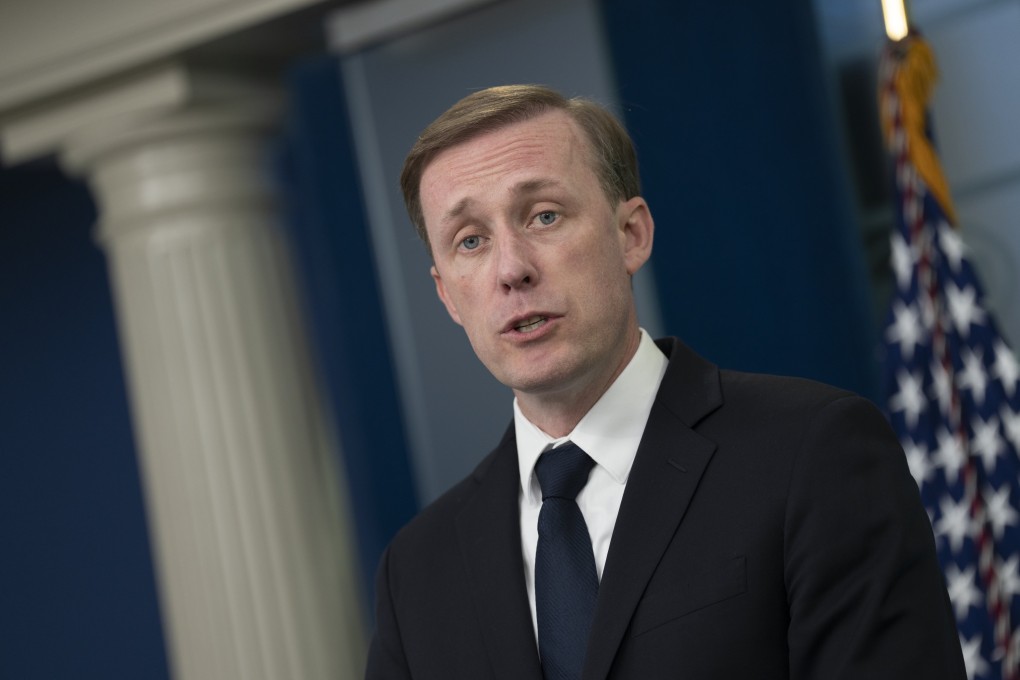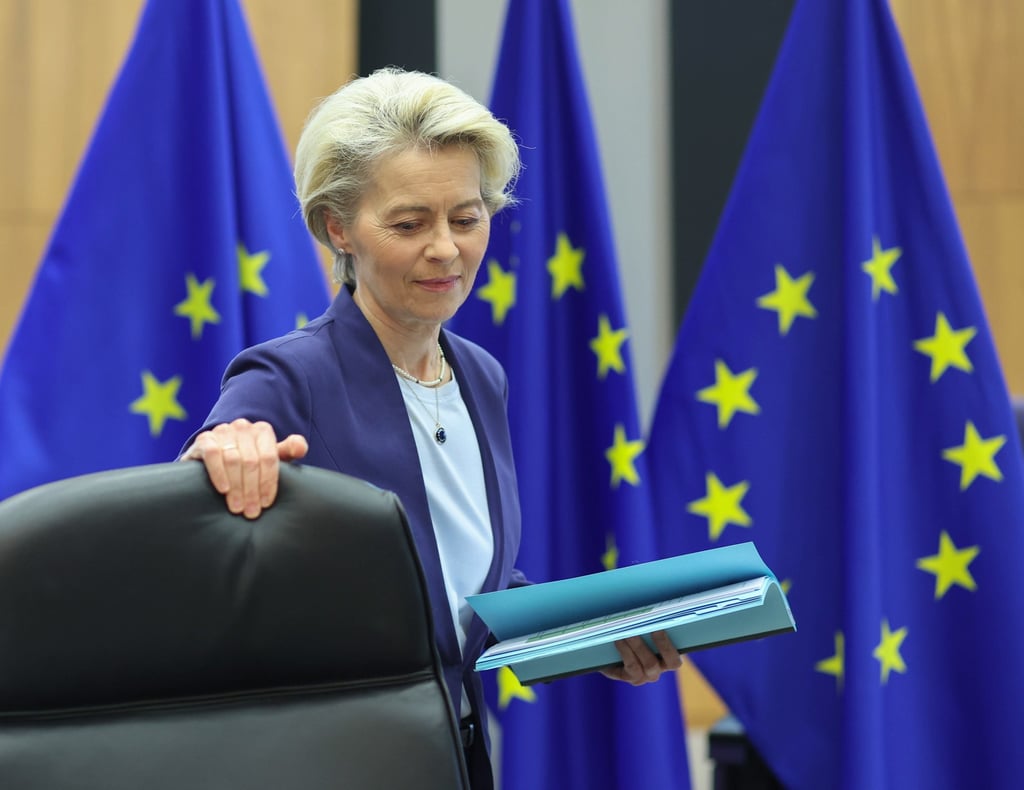Advertisement
US seeks to ‘de-risk’ its relationship with China, national security adviser says
- Jake Sullivan uses same language as EU leader Ursula von der Leyen, in a bid to more closely align Washington and Brussels approaches to Beijing
- Meanwhile, US intel chiefs do not believe a conflict with the PRC is either imminent or inevitable’ and seek to ensure ‘no miscalculation’
Reading Time:3 minutes
Why you can trust SCMP
99+

Orange Wangin Washington
US President Joe Biden seeks a “de-risking” but not decoupling with China to forge a new consensus for the international economic order, National Security Adviser Jake Sullivan said on Thursday, in remarks reflecting a bid to align the US more closely with the European Union on China.
“We converged with key European leaders in saying we are for de-risking, not for decoupling,” he said during a speech at the Brookings Institution in Washington.
“De-risking fundamentally means having resilient, effective supply chains and ensuring we cannot be subjected to the coercion of any other country,” Sullivan added.
Advertisement
European Commission President Ursula von der Leyen used the same language in a policy speech just weeks ago in Brussels, then travelled to Beijing with French President Emmanuel Macron to deliver that message directly to Chinese President Xi Jinping.

In her address, von der Leyen focused on the “de-risking” strategy – shorthand for weaning Europe off Chinese supplies of critical minerals and restricting trade in sensitive technologies – including artificial intelligence, microchips and quantum computing.
Advertisement
Advertisement
Select Voice
Choose your listening speed
Get through articles 2x faster
1.25x
250 WPM
Slow
Average
Fast
1.25x